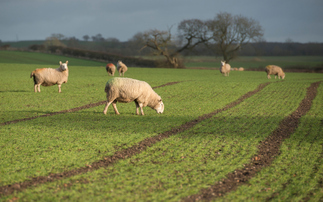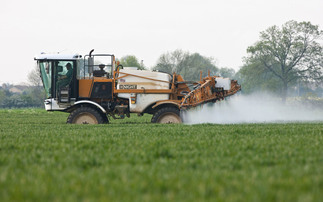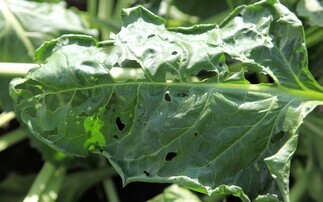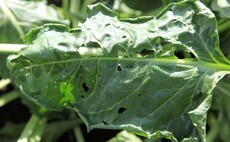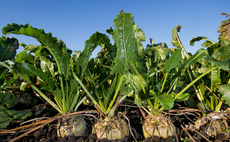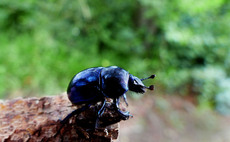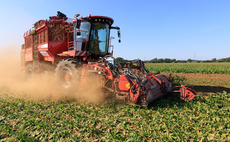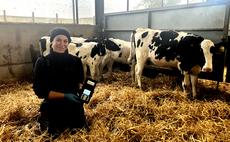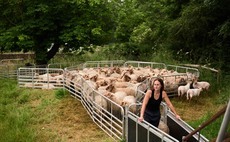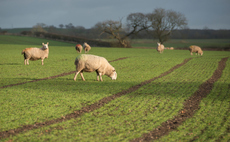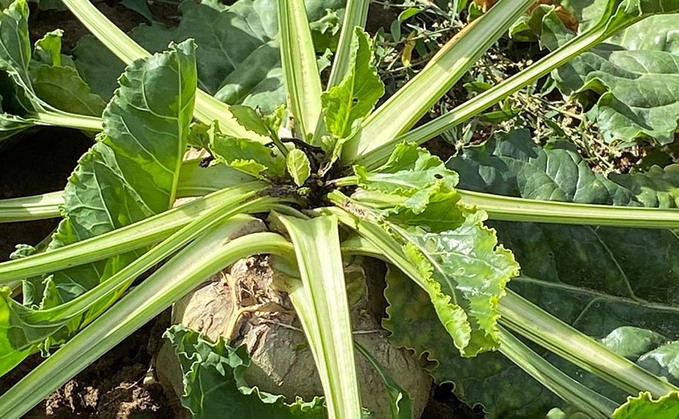
With varied factors causing sugar beet to turn yellow such as beet yellows, weather stresses and an unfamiliar pest, farmers were advised to remain vigilant as a once localised, coastal pest is travelling further afield into the UK causing foliage and root damage to sugar beet crops.
The beet moth is known to have been present in Suffolk salt marshes since 1936, with little movement inland until recent years. However, throughout the 2022 season it was reported to have travelled inland, causing more widespread destruction than seen previously.
“There seems to be a huge eruption [of beet moth pests] in 2022,” said Rosemary Collier, professor of entomology at the University of Warwick, presenting at BeetTech, February 7.
The cause of this outbreak is yet to be determined. However, a specialised working group that focuses on microlepidoptera (micromoths) suspects the moth may have travelled from the continent.
The warm and dry weather throughout 2022 could also have enabled the moths to complete more life cycles than the two typically seen under UK climatic conditions.
“It does well in warm countries, so it completes more generations. Looking at studies from Hungary, they found the changes in the numbers of caterpillars correlated positively with the temperatures in July and August and negatively with the humidity implying that rainfall may limit their development,” Prof Collier said.
IPM Pyramid
She recommended implementing the IPM pyramid with the use of chemical pesticides being an absolute last resort and believes the next step in plant protection should be to look at pheromone trapping.
“A pheromone to attract male moths has been identified which can be used in the monitoring.
“Really I think this needs to be the next step as we need to know whether beet moths are present and whether they are flying,” said Prof Collier.
Once beet moths have been identified, farmers are advised to employ physical or mechanical strategies before trying chemical pesticides.
“There is information that [beet moths] prefer dry conditions, so it is possible that irrigation would reduce their numbers, as small caterpillars die when conditions are wet, but there do seem to be conflicting results on the impact of irrigation,” she said.
A study indicated that ploughing could reduce the carryover of insects from one generation to the next making it much harder for the moths to emerge.
Resistance
As a last resort, Prof Collier said that beet moths can be controlled by pesticides approved for controlling caterpillars and there is no reason to believe that they are resistant to this active substance.
“You do need to target the caterpillars; I don’t think you’ve got a hope of killing the moths.”
Growers need to keep an eye on this new pest and remain vigilant, said Prof Collier.








